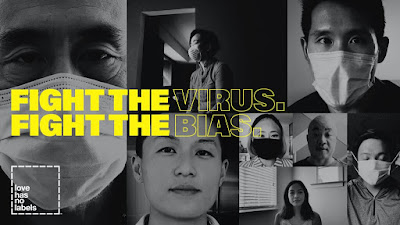The Difficult Realities of Cultural Competence Courses for Counseling
In the ACA Code of Ethics and the CACREP standards, there is an expectation that counselors are to be trained for cultural competence at some level. Surprisingly and thankfully, they include addressing identity and privilege of the counselor and the effect on clients. Unfortunately, from what I'm hearing from White classmates who have taken the cross-cultural counseling class in my program, these expectations are certainly not being fulfilled.
For one student, she talked about how her White privilege was being pushed into her face and how she was very uncomfortable. I'm sorry but I have little sympathy for the fact that she was uncomfortable for a semester three hours a week whereas people of color since childhood have had to live not only with discomfort but danger for being who they based on what they look like.
Another student stated that he actually wished his class had more dialogue about race and privilege especially since this was so new to him. However when I delved into the topic with him, he began to look, yes, uncomfortable. As much as he said he wanted such dialogue, all I could think, "You couldn't handle 5 minutes right here. What makes you think you can handle three hours twice a week in a summer course?"
Yet it's vitally important that counselors are able to navigate race and racism when working with clients. Today I read in the NYT about the trauma experienced by youth and children after the shootings of their family members in the past two plus years. When I think of the above two counselors, it makes me wonder if the cross-cultural counseling class are addressing what it means to counsel survivors of racial hatred. I'm not convinced of it.
I remember years ago when I was working in diversity at a small liberal arts college in Santa Barbara and how some faculty, students and staff questioned the necessity of the work I was doing. After all that has recently happened in Baton Rouge, Falcon Heights in MN and Dallas, the work of diversity, inclusion and of social and racial justice is more relevant than ever. We just have to figure out a way of imparting such knowledge and skills that will really make a difference in a nation that's being torn apart from racial strife. Strife that has always been part of communities of color but have only made headlines because of technology.
For one student, she talked about how her White privilege was being pushed into her face and how she was very uncomfortable. I'm sorry but I have little sympathy for the fact that she was uncomfortable for a semester three hours a week whereas people of color since childhood have had to live not only with discomfort but danger for being who they based on what they look like.
Another student stated that he actually wished his class had more dialogue about race and privilege especially since this was so new to him. However when I delved into the topic with him, he began to look, yes, uncomfortable. As much as he said he wanted such dialogue, all I could think, "You couldn't handle 5 minutes right here. What makes you think you can handle three hours twice a week in a summer course?"
Yet it's vitally important that counselors are able to navigate race and racism when working with clients. Today I read in the NYT about the trauma experienced by youth and children after the shootings of their family members in the past two plus years. When I think of the above two counselors, it makes me wonder if the cross-cultural counseling class are addressing what it means to counsel survivors of racial hatred. I'm not convinced of it.
I remember years ago when I was working in diversity at a small liberal arts college in Santa Barbara and how some faculty, students and staff questioned the necessity of the work I was doing. After all that has recently happened in Baton Rouge, Falcon Heights in MN and Dallas, the work of diversity, inclusion and of social and racial justice is more relevant than ever. We just have to figure out a way of imparting such knowledge and skills that will really make a difference in a nation that's being torn apart from racial strife. Strife that has always been part of communities of color but have only made headlines because of technology.


Comments
Post a Comment